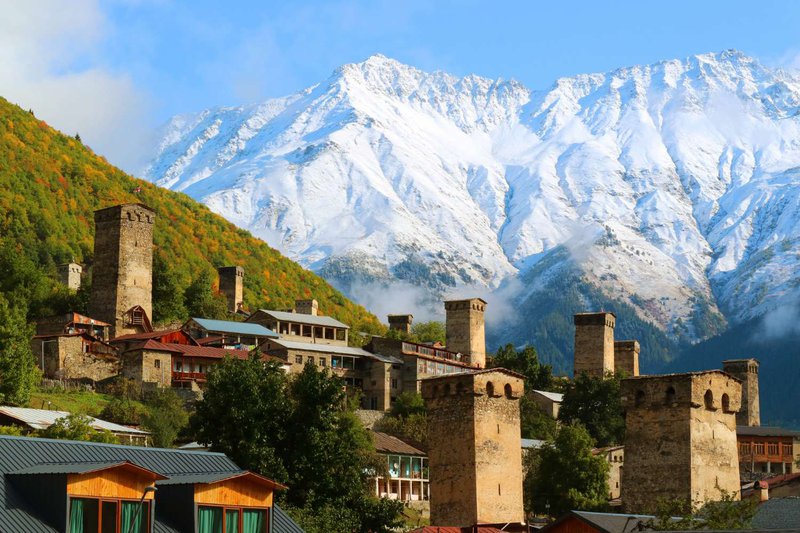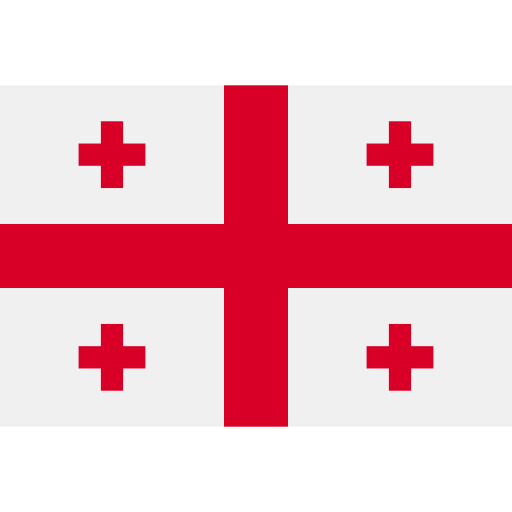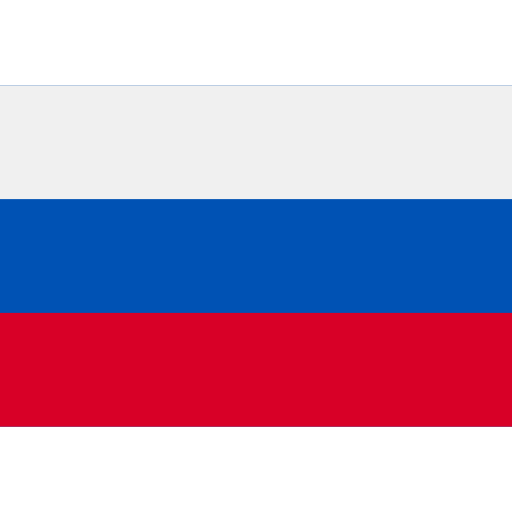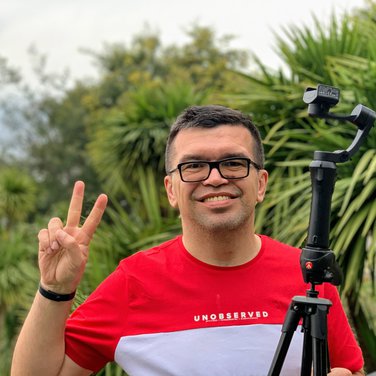
Georgian Surnames: Origin, Meaning and Cultural Heritage
Explore the richness and diversity of Georgian family names in this article. We explore the origins and meanings of suffixes and prefixes such as -shvili, -dze, -ani, -iani, -uri, and -uli, as well as rare endings that reflect the unique traditions and cultural characteristics of Georgia’s different regions. Understanding these family names helps us better understand the history, culture, and ethnic identity of the Georgian people. Join us in learning and preserving this important aspect of our cultural heritage.
Origin and Meaning of Georgian Surnames: Cultural Heritage and Identity
In this article, we will explore the amazing world of Georgian surnames, revealing their meanings and origins. You will learn how the endings of surnames can indicate the region of origin and ethnicity of their bearers. We will look at the most common surnames ending in -shvili and -dze, typical of Eastern and Western Georgia, as well as the suffixes -iya, -ua, -ani and others, common among Mingrelians and residents of highland regions. In addition, we will talk about rare endings and the meaning of prefixes associated with professions. This article will allow you to better understand the cultural and historical heritage of Georgia through the prism of the surnames of its inhabitants.

Why is it interesting to know about the origin and meaning of Georgian surnames
Studying the origins and meanings of Georgian surnames opens up a rich cultural and historical context that helps us better understand the unique identity and traditions of this ancient people. Here are some reasons why this is so interesting:
- Historical Heritage: Georgian family names carry a centuries-old history, reflecting important events, migrations, and changes that took place in the region. Understanding the meanings and origins of family names allows us to look at the past of the country and its people through the personal stories of families and clans.
- Geographical and Ethnic Roots: The suffixes and endings of family names often point to specific regions and ethnic groups, which helps to identify geographical and cultural differences within Georgia. This knowledge is useful for those interested in the ethnography and geography of the Caucasus.
- Cultural Identity: Family names play an important role in the formation and preservation of cultural identity. Knowing their meanings strengthens people's connection with their roots and helps pass on traditions and customs from generation to generation.
- Linguistic Interest: The Georgian language is rich in unique linguistic features, and family names are a prime example of this. Studying family names helps us understand the structure and evolution of the language, as well as its interaction with other languages and cultures.
- Genealogical Research: For those researching their family tree, understanding the meanings of family names can provide valuable clues and information about ancestors, their occupations, and where they lived.
- Social and Family Ties: In Georgia, family names often play a key role in social interactions, helping to establish connections between families and determine lineage. This helps to strengthen social ties and maintain community.
Thus, knowledge of the origin and meaning of Georgian surnames not only enriches our understanding of the history and culture of Georgia, but also helps strengthen the connection with the past and present of this amazing country.

General information about Georgian surnames
Explaining the relationship between endings and regions and ethnic groups
Georgian surnames have a unique structure that often indicates the geographical origin, ethnicity, and cultural characteristics of their bearers. The endings of surnames serve as a key to unraveling these connections, allowing us to better understand the history and culture of Georgia. Let's look at the main endings of Georgian surnames and their connection with regions and ethnic groups.
-shvili and -dze
-shvili:This ending is most common in Eastern Georgia. It means "child" and refers to the eastern regions of the country. Examples include the surnames Berdzenishvili and Ivanishvili.
-dz:This ending is common in Western and Central Georgia. It means "son". Examples of surnames include Mamaladze and Maisuradze.
-iya, -ua, -aya and -ava
These endings are typical for Mingrelians living in the Samegrelo region in western Georgia. Mingrelians are an ethnic group with their own language and culture. Examples of surnames: Grigolia, Gurtskaya, Gagua, Eliava, Okudzhava.
In Soviet times, the ending -ia was often written as -iya (for example, Beria). In modern language, both variants are used (for example, Zhordania and Zhordania).
-ani and -iani
These endings are typical for the inhabitants of the highland region of Svaneti, located in northwestern Georgia. Svans are an ethnic group with a unique language and traditions. Examples of surnames: Ioseliani, Pilpani, Gvarliani, Jishkariani.
-uri and -uli
These suffixes are often found among highlanders from the eastern mountainous provinces of Georgia, such as the Khevsurs. The Khevsurs are an ethnic group known for their warlike traditions and unique culture. Examples of surnames: Gigauri, Tsiklauri, Zviadauri, Guruli, Chkareuli.
Rare endings
Some endings are less common, but have important cultural significance. For example, Tseret-eli, Gegechk-ori, Tug-ushi, Bagv-ashi, Jak-eli, Amiredzh-ibi, Erista-vi, Amilakhv-ari, Glon-ti and others. These surnames may indicate belonging to certain clans, professions or historical events.
Prefixes and Professions
Georgian surnames may contain the prefix m- with a root denoting a profession. Such surnames often come from ancestors who held important positions or possessed specific skills. Examples: Mdivani (clerk), Mebuke (bug player, cupbearer).
These endings and prefixes not only add uniqueness to the surname, but also serve as a valuable source of information about the geographical and cultural origins of its bearers. They help preserve and pass on Georgia's cultural heritage from generation to generation.

Surnames in -shvili and -dze
Origin and meaning of the suffixes -shvili and -dze
Georgian surnames ending in -shvili and -dze are among the most common and significant in the cultural and historical context of Georgia. These suffixes have ancient roots and reflect the peculiarities of regional and ethnic distribution within the country.
- -shvili: The suffix -shvili comes from the Georgian word "შვილი" (shvili), which means "child" or "kid". This suffix indicates the descendants or children of a certain clan or family.
- -dze: The suffix -dze comes from the Georgian word "ძე" (dze), which means "son". It also indicates descendants, but with an emphasis on the male line of the clan.
Examples of surnames
Surnames with these endings are common throughout Georgia, and many of them became famous thanks to outstanding figures in history, culture and politics.
- Berdzenishvili: An example of a surname with the suffix -shvili, common in Eastern Georgia.
- Ivanishvili: Another surname ending in -shvili, known thanks to the political figure Bidzina Ivanishvili.
- Mamaladze: A surname ending in -dze, common in Western and Central Georgia.
- Maisuradze: Another example of a surname with the suffix -dze.
Regional distribution
- -shvili: Surnames with the suffix -shvili are more common in Eastern Georgia. This regional accent is explained by historical migrations and social structures that existed in these territories.
- -dze: Surnames with the suffix -dze are more common in Western and Central Georgia. This is due to the fact that these regions have historically developed certain cultural and social characteristics that are reflected in the surnames.
The meaning of the words "shvili" and "dze"
- "Shvili": The word "შვილი" (shvili) translated from Georgian means "child" or "baby". This suffix emphasizes the connection with the clan and the family heritage, indicating the descendants of a certain clan.
- "Dze": The word "ძე" (dze) is translated as "son". It emphasizes the male line of the clan, denoting descendants in the male line.
Surnames with the endings -shvili and -dze not only identify people, but also serve as an important element of cultural heritage, emphasizing the ties between generations and regional characteristics of Georgia.
Surnames ending in -iya, -ua, -aya and -ava
Origin and meaning of the suffixes -iya, -ua, -aya and -ava
Georgian surnames ending in -iya, -ua, -aya and -ava are typical for the Megrelian ethnic group living in the Samegrelo region of western Georgia. These suffixes have deep cultural roots and reflect the specifics of the Megrelian language and traditions.
- -ия: This suffix comes from the Megrelian ending and is often found in surnames. During the Soviet era, the ending -иа was often written as -ия, which was reflected in official documents and literature.
- -уа: This ending indicates the Megrelian origin of the surname and is typical for surnames in Samegrelo.
- -ая: Like other suffixes, -ая is also typical for Megrelian surnames, giving them a unique sound and identifying their bearers.
- -ава: The suffix -ava is also widespread among Megrels and has a similar meaning.
Examples of surnames
Surnames with these endings are a vivid example of the Megrelian cultural heritage:
- Grigoliya: An example of a surname with the suffix -iya, common among the Megrelians.
- Gurtskaya: A surname with the ending -aya, known thanks to the singer Diana Gurtskaya.
- Gagua: An example of a surname with the suffix -ua.
- Eliava: A surname with the ending -ava, which has Megrelian origin.
- Okudzhava: Another surname with the suffix -ava, known thanks to the poet and bard Bulat Okudzhava.
Features of spelling and differences in Soviet and modern times
During the Soviet era, there were changes in the spelling of Megrelian surnames:
- The suffix -ia was often written as -iya. This change was associated with the adaptation of Megrelian surnames to the Russian language and writing. An example is the surname Lavrenty Beria, which in the original sounded like Beria.
- In modern times, there has been a return to the original spelling, and both variants are often used in parallel. For example, the surnames Zhordania and Zhordania can be found depending on the preferences of the bearer or official documents.
Regional distribution: Mingrelians from Samegrelo
Megrelians are an ethnic group living in western Georgia, primarily in the Samegrelo region. This region is known for its unique language, culture and traditions. Megrelian surnames ending in -iya, -ua, -aya and -ava are distinctive features of the region's inhabitants and highlight their cultural identity.
Megrelian surnames serve as an important element of cultural heritage and help preserve and pass on traditions and history from generation to generation. They are an integral part of the Georgian cultural mosaic and reflect the richness and diversity of this ancient land.
Surnames ending in -ani and -iani
Origin and meaning of the suffixes -ani and -iani
Georgian surnames ending in -ani and -iani are typical for the highland region of Svaneti, located in northwestern Georgia. These suffixes reflect the ancient traditions and cultural heritage of the Svans, an ethnic group living in the region.
- -ani: The -ani suffix is common in Svan surnames and indicates belonging to a certain family or clan.
- -iani: The -iani suffix is also typical for Svan surnames and has a similar meaning, sometimes emphasizing a connection to a more specific family line.
Examples of surnames
Surnames with these endings are typical for Svan families and are often found in the Svaneti region:
- Ioseliani: An example of a surname with the suffix -ani, known thanks to the Georgian politician Jaba Ioseliani.
- Pilpani: A surname with the ending -ani, common among Svans.
- Gvarliani: Another surname with the suffix -ani, typical for Svans.
- Jishkariani: An example of a surname with the suffix -iani, also found among residents of Svaneti.
Regional distribution: high mountain region of Svaneti
Svaneti is a mountainous region known for its unique traditions, language and culture. The Svans, an ethnic group living in the region, have a distinct culture and identity.
- Geography: Svaneti is located in northwestern Georgia, in the central part of the Greater Caucasus. The region is known for its rugged mountains and well-preserved medieval towers.
- Culture: The Svans maintain unique cultural traditions, many of which are passed down from generation to generation. This includes linguistic features, folklore and architecture.
- Language: The Svan language is distinct from Georgian and has its own dialects. Although most Svans also speak Georgian, the Svan language remains an important part of their cultural heritage.
Svan surnames ending in -ani and -iani reflect their deep connection to the region and are an important part of their cultural identity. These suffixes help preserve the unique features of Svan culture and traditions, passing them down from generation to generation.
Surnames in -uri and -uli
Origin and meaning of the suffixes -uri and -uli
Georgian surnames ending in -uri and -uli are typical for mountaineers, especially those from the eastern mountainous provinces of Georgia, such as the Khevsurs. These suffixes reflect the ancient traditions and cultural heritage of the mountain peoples.
- -uri: The -uri suffix is often used in surnames and indicates belonging to a certain clan or tribe. It can also mean "belonging to" or "coming from".
- -uli: The -uli suffix is also used to indicate origin and belonging to a certain region or clan. It has a similar meaning to the -uri suffix.
Examples of surnames
Surnames with these endings are typical for the mountainous regions of Georgia and are especially common among the Khevsurs:
- Gigauri: An example of a surname with the suffix -uri, common among the highlanders.
- Tsiklauri: Another surname with the ending -uri, typical for the inhabitants of the eastern mountainous provinces.
- Zviadauri: A surname with the suffix -uri, known thanks to the Olympic champion Giorgi Zviadauri.
- Guruli: An example of a surname with the suffix -uli, common among the mountain peoples.
- Chkareuli: Another surname with the ending -uli, typical for the highlanders.
Regional distribution: eastern mountain provinces, Khevsurs
The Khevsurs are an ethnic group living in the eastern mountainous provinces of Georgia, such as Khevsureti. This region is known for its rugged mountains and unique cultural traditions.
- Geography: The eastern mountainous provinces of Georgia, including Khevsureti, are located in the central part of the Greater Caucasus. This region is characterized by harsh natural conditions and isolation.
- Culture: The Khevsurs maintain unique cultural traditions, including traditional clothing, music, and dance. Their culture is known for its militancy and independence.
- Language: The Khevsur dialect of Georgian has its own characteristics, but most Khevsurs also speak standard Georgian.
Surnames ending in -uri and -uli help identify belonging to these mountainous regions and are an important part of the Khevsur cultural heritage. They reflect a connection to the land and clan, passing on the unique traditions and history of these mountain people from generation to generation.

Rare endings in Georgian surnames
Georgian surnames with rare endings often have deep historical and cultural roots. These surnames may indicate belonging to certain clans, professions or historical events. Let's consider some of these rare endings and their meanings.
Examples of rare endings and their meanings
- Tseret-eli
- Origin: This ending comes from the name of the Tsereteli clan, which has ancient roots in the Georgian aristocracy.
- Meaning: The Tsereteli surname indicates belonging to a noble family that played a significant role in the history of Georgia.
- Gegechk-ori
- Origin: The suffix -ori can indicate a profession or geographical origin. Gegechkori is a family name originating from the western regions of Georgia.
- Meaning: This family name can indicate belonging to a certain clan or profession.
- Туг-уши
- Origin: The ending -уши is often found in mountaineer surnames, especially in Khevsureti.
- Meaning: Tugushi can mean belonging to a certain mountain clan or tribe.
- Bagv-ashi
- Origin: The suffix -ashi is found in surnames associated with ancient Georgian families.
- Meaning: Bagvashi can indicate belonging to a noble family or territorial unit.
- Jack-e-lee
- Origin: The ending -eli indicates belonging to an aristocratic family. Jakeli is one of the oldest and most noble families in Georgia.
- Meaning: The surname Jakeli is associated with historical nobility and power.
- Amirej-ibi
- Origin: The suffix -ibi can indicate belonging to a certain family or profession. Amirejibi is a family name with deep roots in Georgian history.
- Meaning: This family name can mean "owner", "ruler" or belonging to a noble family.
- Erista-vi
- Origin: The ending -vi can mean a title or rank. Eristavi is a title meaning "governor" or "prince".
- Meaning: The surname Eristavi indicates nobility and administrative power.
- Amilakhv-ari
- Происхождение: Суффикс -ари часто встречается в фамилиях, связанных с определенными профессиями или обязанностями. Амилахвари – это древняя фамилия, связанная с титулом "воевода".
- Значение: Фамилия Амилахвари ассоциируется с военной и административной властью.
- Glon-ti
- Origin: The ending -ti indicates belonging to a certain region or clan. Glonti is a surname found in western Georgia.
- Meaning: This surname can mean belonging to a noble or respected family.
Each of these rare endings carries a rich history and cultural heritage, reflecting unique aspects of Georgian life and traditions. They help preserve and pass on knowledge of genealogies, territorial affiliations, and the social structure of Georgian society from generation to generation.
Prefixes and professions in Georgian surnames
Explanation of the meaning of prefixes
Georgian surnames often contain prefixes that indicate the profession, occupation, or social status of the ancestors of the bearer of the surname. One of these common prefixes is m-. This prefix, added to the root of the word denoting a profession or occupation, emphasizes belonging to a certain professional group or social class.
Examples of surnames with prefixes
- Mdivani
- Происхождение: Фамилия Мдивани происходит от грузинского слова "მდივანი" (mdivani), что означает "писарь" или "секретарь".
- Значение: Приставка м- указывает на принадлежность к профессии писаря, занимавшего важную административную должность в прошлом.
- Mebuke
- Origin: The surname Mebuke comes from the Georgian word "მებუკე" (mebuke), which means "bugbearer" or "cupbearer".
- Meaning: The prefix m- indicates a profession related to the duties of a bugler or cupbearer, who played an important role at the court of the Georgian kings.
Connection of prefixes with professions
In Georgian culture, surnames with prefixes not only indicate the professional affiliation of ancestors, but also emphasize social status and role in society. Prefixes such as m- often reflect occupations that were significant and respected in the past.
- m-: This prefix indicates a certain profession. For example, Mdivani (scribe) and Mebuke (bugler, cupbearer) illustrate how the m- prefix connects the root word with a profession.
- Other prefixes can also be found in Georgian surnames, reflecting a variety of professional and social roles. These prefixes help identify the occupation of ancestors and their contribution to society.
Prefixes such as m- play a key role in this heritage, indicating the profession or social status of the ancestors of the family name bearer. Knowing the origin and meaning of these prefixes helps to gain a deeper understanding of the cultural and historical roots of Georgian family names, as well as strengthens the connection with the past and traditions. Learning these family names not only enriches our understanding of Georgian culture, but also helps to preserve and pass on this heritage to future generations.

Georgian family names represent a unique cultural heritage reflecting the rich history and diversity of the region. They often contain suffixes and prefixes that indicate geographical origin, ethnicity, profession or social status of the ancestors. The most common suffixes, such as -shvili and -dze, indicate regional differences between eastern and western Georgia. The suffixes -iya, -ua, -aya and -ava are characteristic of the Mingrelians from Samegrelo, while -ani and -iani are found among the inhabitants of Svaneti. The suffixes -uri and -uli are common among the highlanders from the eastern mountainous provinces, such as the Khevsurs. In addition, there are rare endings such as -eli, -ori, -ashi, -ibi and -ari, indicating belonging to noble families or professions.
Cultural significance and impact on self-identification
Surnames play a key role in shaping the cultural identity and self-awareness of the Georgian people. They are an integral part of personal and family history, connecting the bearers of surnames with their ancestors and family roots. Knowing the meaning and origin of surnames helps people better understand their roots and strengthen their connection with cultural heritage. Surnames also serve as an important marker of social belonging and status, reflecting the profession or occupation of ancestors. For example, surnames with prefixes such as m- indicate the professional activity and significance of ancestors in society. This helps bearers of surnames feel proud of their roots and maintain a sense of belonging to a certain social group or profession.
Calls for the Study and Preservation of Cultural Heritage
Studying Georgian family names is important for preserving cultural heritage and passing it on to future generations. Understanding the meaning and origin of family names helps us gain a deeper understanding of Georgia’s history and cultural wealth. It is important to continue researching and documenting family names to preserve these unique aspects of the culture for future generations.
We encourage everyone interested in Georgian culture and history to actively participate in studying and preserving family names. This can be done through genealogical research, collecting and analyzing historical documents, and participating in cultural events and educational programs. Preserving and passing on knowledge about family names strengthens cultural identity and helps preserve Georgia’s rich cultural heritage.
Studying Georgian family names not only enriches our understanding of the culture, but also helps maintain and pass on the values and traditions that are the basis of the nation’s identity and pride.







5 comments
Log in to leave a comment